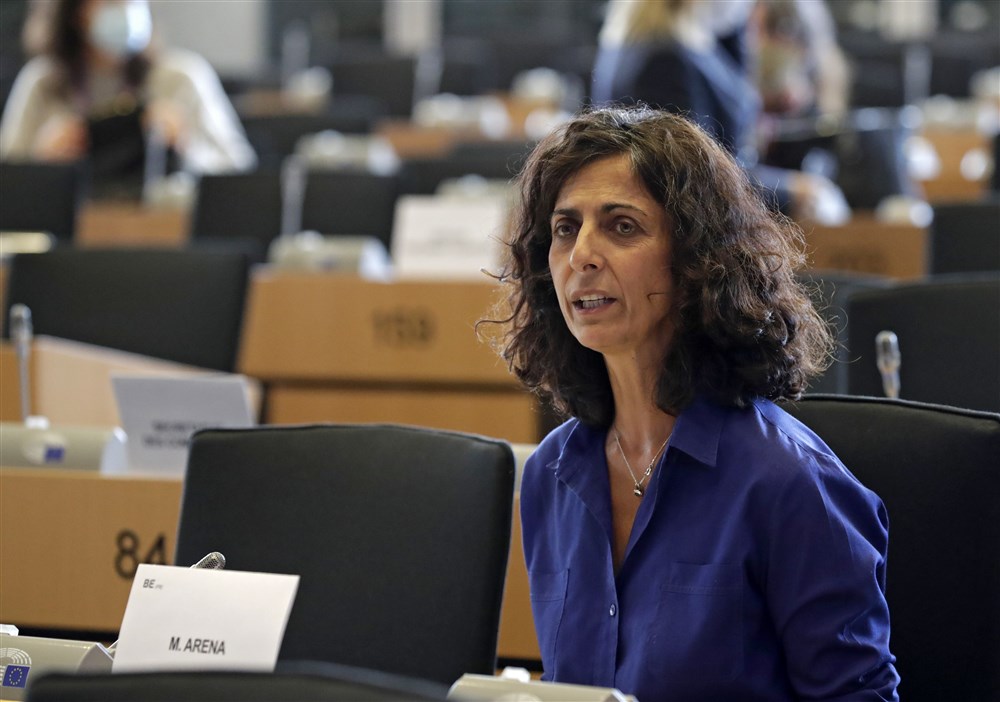“In this world,” the old Benjamin Franklin adage goes, “nothing can be said to be certain, except death and taxes.”
If Franklin had lived to see his country stumble into the twenty-first century, he might have added “Left-wing Ivy League professors” to his list. The militant Leftism of America’s top universities has been a fact of life for the better part of the past 75 years — and until recently, the politicians, donors, and special interests that run the American political establishment seemed largely uninterested in doing much of anything to confront it.
All that has changed over the past two months. Amid the explosion of anti-Israel activity within America’s elite universities, campus ideologues have found themselves squarely within the crosshairs of politicians and donors alike.
The doctrine known as Diversity, Equity, and Inclusion (DEI) — often just a shorthand for the anti-white, anti-male, anti-American ideological fervor that has consumed most of the nation’s top colleges — has borne the brunt of this backlash: A recent Washington Examiner piece, “Antisemitism backlash ignites revolt against DEI programs on college campuses,” noted that the fierce scrutiny has already deprived schools like Harvard of as much as $1 billion in donations.
The criticism must feel bewildering to DEI bureaucrats, who have spent the past decade shaking down their respective college administrations for lavishly-funded sinecures.
But conservatives are understandably enthusiastic about the prospect of new allies in the campus culture war: Powerful voices, including a number of notable Democrats, are emerging as sharp critics of the Left’s control of elite universities — and their interventions are already bearing fruit.
University of Pennsylvania president Elizabeth Magill, for example, was ousted after her congressional testimony on campus anti-Semitism invited widespread outrage, including from Pennsylvania’s Democratic governor and U.S. senators.
Harvard is facing a sustained pressure campaign from top donors such as Bill Ackman, a billionaire hedge fund manager who has given millions of dollars to Democrats and Left-wing groups like Planned Parenthood. Columbia felt compelled to suspend two pro-Palestine groups — and convene a Task Force on Antisemitism — after a similar backlash from major donors.
Even usually reliably hard-Left groups like the Anti-Defamation League have become sudden critics of campus wokeness: During a recent MSNBC appearance, ADL president Jonathan Greenblatt fumed that he was “sick of the safe spaces conversation,” and condemned the “oppression Olympics” at American universities.
Some of these Left-leaning figures have expanded their attacks beyond campus anti-Semitism to indict the broader DEI bureaucracy. Ackman, for example, published an open letter condemning the DEI regime’s anti-white racism, racial preferencing, threats to free speech, and broader climate of anti-intellectualism.
But the primary concern for the new DEI critics remains the hardline anti-Zionism emanating from American campuses. The simple fact is that most of these powerful donors, politicians and activists saw the far Left’s hold on academia as an acceptable, if not necessarily ideal, condition until it veered into the war in Israel.
This issue is not confined to Democratic donors. High-profile Republican philanthropists such as Marc Rowan and Ken Griffin were all too happy to heap tens of millions of dollars — hundreds, in Griffin’s case — on their respective alma maters, UPenn and Harvard, as both schools pumped a generation of radicals into the halls of American power.
Now, both Rowan and Griffin are on the warpath against the two Ivy League universities, exerting their considerable influence to push for systemic reforms. But to what end?
It’s entirely possible that these powerful new opponents of campus wokeness can become allies in the campaign to dismantle DEI. But a second possibility — one that many optimistic conservatives have failed to consider — is that the pyrrhic victory of a few woke administrators’ scalps will be followed by an empowered DEI regime.
College administrators are not known for their moral courage or independence. They are creatures of incentive — and the incentives they are currently facing, under heavy outside pressure, compel them to crack down on campus anti-Semitism. That’s a laudable goal in and of itself, but it’s a far cry from ending DEI.
If anti-Semitism — even left-wing anti-Semitism — is isolated as the chief objective of the donor pressure campaign, it will merely be added to the long list of phobias and -isms that are already punished by the DEI regime.
That may well satisfy the donors, but it would represent a total betrayal of the conservative cause. The result would be less free speech, more diversity and equity bureaucrats, and in the long run, an even more hostile environment for Right-wing voices. (The Left has deemed all manner of conservative ideas “anti-Semitic”; if given the chance, is there any doubt that they wouldn’t do the same on campus?)
This isn’t a subject of abstract speculation. “It’s a reality that traditional DEI has not been inclusive enough of anti-Semitism and it’s urgent to address the gaps,” Stacy Burdett, the former vice president of the ADL, told Axios earlier this month. “The racial justice movement as we know it may not have imagined the need to support and protect a group of mostly white people who are targeted by hate crimes and identity-based harassment.”
The ADL — which classifies criticisms of everything from George Soros to the tactics of the ADL itself as “anti-Semitic” — has played a major role in the censorship of conservative voices in the digital space. One need not imagine what the group and its allies mean when they call for stricter prohibitions against “identity-based harassment.”
It is not enough for alarmed donors to tacitly acknowledge that anti-Semitism is only one of many issues that are native to DEI, or to abstractly agree that the entire system is rotten.
They must be fully invested in confronting the ideological toxins in academia’s bloodstream, and willing to use their influence to do just that, rather than being placated by a set of new additions to DEI’s already-lengthy list of protected classes.
If they can do that, then the Right should welcome them with open arms. But until then, conservatives should proceed with caution, lest they become unwitting collaborators in their own unmaking.





Europe’s capital needs media to challenge the status quo: That’s why Brussels Signal is launching